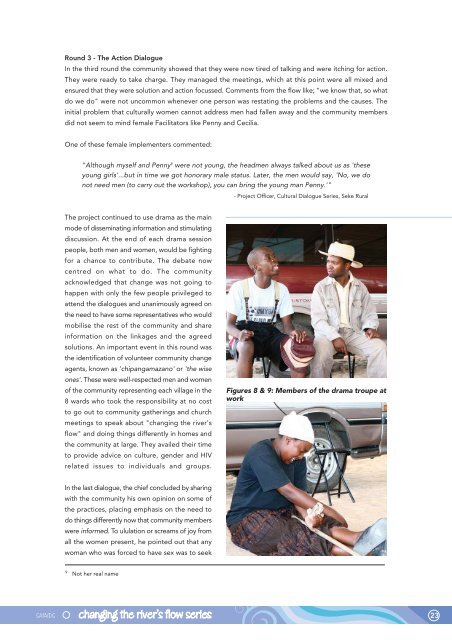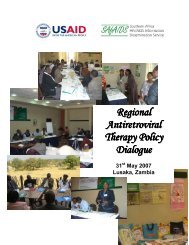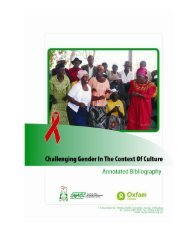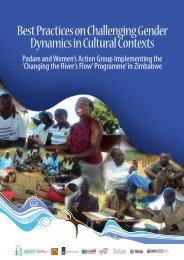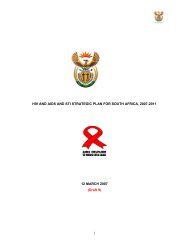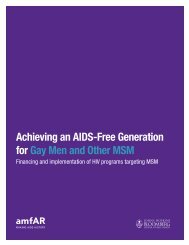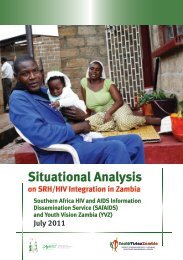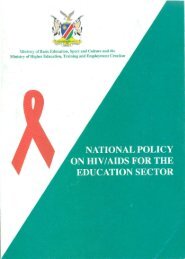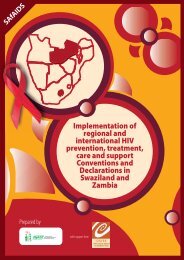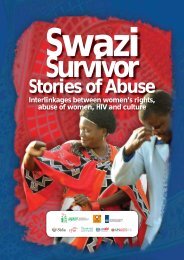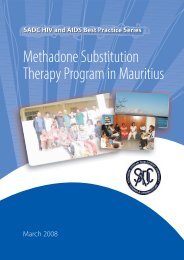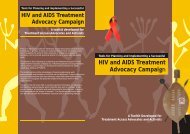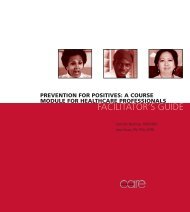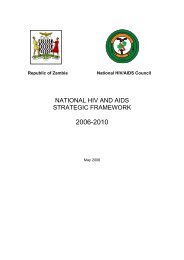Zimbabwean stories of "Best Practice" - SAfAIDS
Zimbabwean stories of "Best Practice" - SAfAIDS
Zimbabwean stories of "Best Practice" - SAfAIDS
Create successful ePaper yourself
Turn your PDF publications into a flip-book with our unique Google optimized e-Paper software.
Round 3 - The Action DialogueIn the third round the community showed that they were now tired <strong>of</strong> talking and were itching for action.They were ready to take charge. They managed the meetings, which at this point were all mixed andensured that they were solution and action focussed. Comments from the flow like; "we know that, so whatdo we do" were not uncommon whenever one person was restating the problems and the causes. Theinitial problem that culturally women cannot address men had fallen away and the community membersdid not seem to mind female Facilitators like Penny and Cecilia.One <strong>of</strong> these female implementers commented:"Although myself and Penny 9 were not young, the headmen always talked about us as 'theseyoung girls'...but in time we got honorary male status. Later, the men would say, 'No, we donot need men (to carry out the workshop), you can bring the young man Penny.'"- Project Officer, Cultural Dialogue Series, Seke RuralThe project continued to use drama as the mainmode <strong>of</strong> disseminating information and stimulatingdiscussion. At the end <strong>of</strong> each drama sessionpeople, both men and women, would be fightingfor a chance to contribute. The debate nowcentred on what to do. The communityacknowledged that change was not going tohappen with only the few people privileged toattend the dialogues and unanimously agreed onthe need to have some representatives who wouldmobilise the rest <strong>of</strong> the community and shareinformation on the linkages and the agreedsolutions. An important event in this round wasthe identification <strong>of</strong> volunteer community changeagents, known as 'chipangamazano' or 'the wiseones'. These were well-respected men and women<strong>of</strong> the community representing each village in the8 wards who took the responsibility at no costto go out to community gatherings and churchmeetings to speak about "changing the river'sflow" and doing things differently in homes andthe community at large. They availed their timeto provide advice on culture, gender and HIVrelated issues to individuals and groups.Figures 8 & 9: Members <strong>of</strong> the drama troupe atworkIn the last dialogue, the chief concluded by sharingwith the community his own opinion on some <strong>of</strong>the practices, placing emphasis on the need todo things differently now that community memberswere informed. To ululation or screams <strong>of</strong> joy fromall the women present, he pointed out that anywoman who was forced to have sex was to seek9Not her real name23


